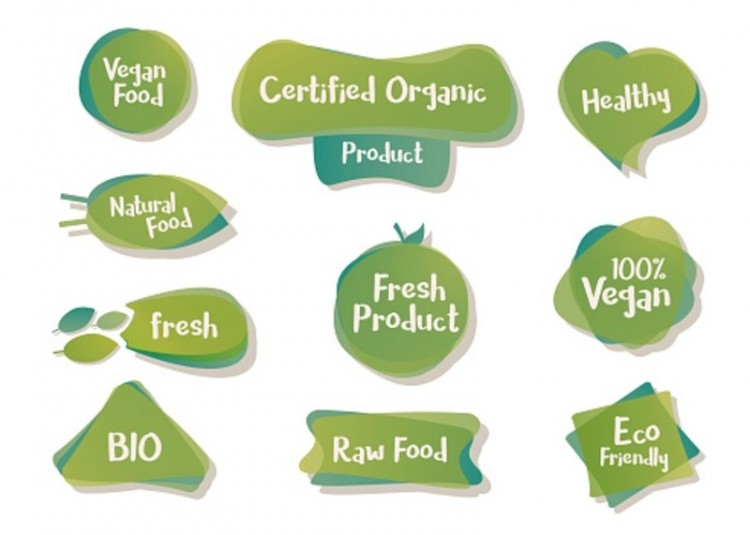Healthier Choices: Healthy snacks to avoid 'Covibesity', better-for-you dessert success and the rise of regenerative foods feature in our round-up

Slim Secrets, big deal: Australian healthy snacking firm seals protein bar deal with Carrefour in Dubai
Australian healthy snacking firm Slim Secrets has secured a listing for its protein bar range in Carrefour supermarkets across Dubai as part of its Middle East expansion.
First established in 2005, Slim Secrets sells protein bars, protein bars with collagen, chocolate blended with nuts, and protein puddings.
According to the company, there was a growing trend for healthy snacks such as protein bars in the Middle East, largely driven by the expats and international community in UAE.
The trend was already seen in places like Australia, Europe, and North America over the last 15 years, but it was only about eight years ago when Slim Secrets saw a demand for such products and exported there with the help of a consolidator.
The firm is now working directly with distributors and has succeeded in stocking 10 SKUs from its protein bar range in retail giant Carrefour.
Fear of ‘Covibesity’: Emergence of snacking trend in APAC boon for fruit-based, wellbeing-focused products
Afternoon snacking has emerged as a rising trend in the Asia Pacific region driven by pandemic-induced habits, which is in turn acting as a boon for healthier snack options with consumers are increasingly wary of COVID-linked obesity or ‘Covibesity’.
The onset of the COVID-19 pandemic led to a significant increase in snacking across multiple countries, according to recent research conducted by a cross-country team across Sri Lanka, Australia and Greece, which examined trends in 34 different nations from China to Europe.
“Snacking was found to be increased for a significant portion of the population examined (between 18.9% to 45.1%, depending on the country),” said the study authors.
“Most of such food items are rich in calories and poor in nutrients, [and overeating] during lockdown could lead to ‘Covibesity’ – [which is a phenomenon] that should not be disregarded as it can be a potential risk factor for COVID-19 infection,” said the authors.
Perhaps due to fear of falling victim to Covibesity after prolonged pandemic-related lockdowns and measures, consumers are now turning to healthier snacking options to continue this snacking habit with less fear – and food manufacturers have identified one particular snacking occasion – the mid-day afternoon snack as a rapidly emerging consumption occasion to watch.
Pandemic proof: UAE healthy ice cream brand House of Pops taps on extensive channel reach for positive growth
UAE healthy ice cream company House of Pops is anticipating a 250% increase in sales this year amid the pandemic, citing its commitment to driving sales across five channels as a key differentiator.
House of Pops currently has four ranges of products, the basic fruit ice cream pops (happiness range), ice cream pops with solid fruit pieces (royal range), fruit ice cream pops with a chocolate coating (chocolate dip), and a keto range.
According to co-founder Marcela Sancho, sales grew 400% in its second year of business, and it anticipates a 250% increase this year amid the pandemic.
“Our product proved to be pandemic proof. We were very worried when the lockdown happened, events were cancelled and there were no tourists.
“Despite this, our online sales grew 10-fold, making up for any drop in other channels.”
PODCAST: ‘Sustainability is not good enough’ - WhatIF Foods CEO on regenerative foods vision and manufacturing innovation
WhatIF Foods claims to be the world’s first firm focused on regenerative crops, and already has several unique products to its name from bambara groundnut-based instant noodles to ube (purple yam) shakes and more.
The Singapore firm’s motto is to change the world ‘one meal at a time’, and according to the firm's CEO Christoph Langwallner, the way forward requires a lot more than just focusing on ‘sustainability’ but also paying attention to regeneration and regenerative crops.
“[The trendy] plant-based and vegan products today are helping to bring more consumers to the table, but most of these products do not have the answers for the challenges that a significant number of smallholder farming have, as well as fully addressing consumers’ nutritional needs,” he told FoodNavigator-Asia.
“I feel that what we call sustainability today is something that is really not good enough as it does not resolve a lot of the questions out there, and we really need to go forward into a much more regenerative mode.
“[Our] selection criteria for crops is that these be complete in nature to can help replenish nutrients [in consumer diets], that these can grow these crops in situations where land is really challenged and has been left behind after intensive monoculture, and also where we can work directly with farming communities to improve livelihoods.”
Adios hangover: Kirin’s Mercian develops ready-to-drink non-alcoholic sangria for young Japanese consumers
Kirin’s wine subsidiary Mercian Corporation has developed its first non-alcoholic sangria drink, designed to capture the attention of younger consumers.
Marketed under the new brand, Mock Bar, the non-alcoholic sangria drink is made with a non-alcoholic wine extract, fruit juices (orange, mango, pear, pineapple), and spices (cinnamon, mint).
The ready-to-drink sangria will be sold at supermarkets, convenience stores, and e-commerce platforms across Japan.
Yohei Nagaya, brand manager of Mock Bar, told FoodNavigator-Asia: “In our customer survey, many consumers, especially the younger generation, responded that they like to drink, but want to enjoy their time without getting drunk, and that they want to drink products that give them a special feeling, even if they are non-alcoholic."









